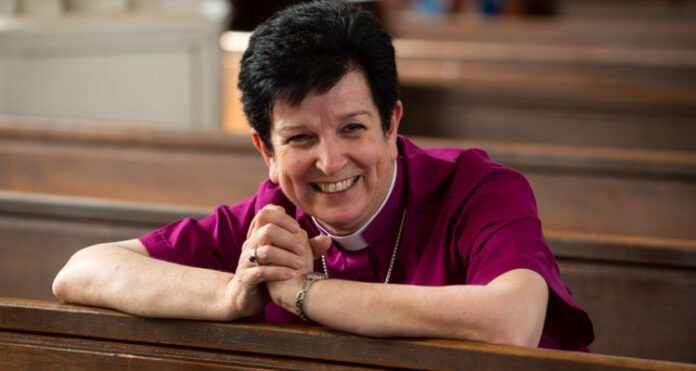Charges of bullying against the Anne Dyer, Bishop of Aberdeen and Orkney in the Scottish Episcopal Church, have been dismissed because some complainants had misgivings about giving testimony and being cross-examined. Paul Reid, the church’s procurator (prosecutor), also wrote that the passage of time was a factor in his decision.
“I remain of the view that there is sufficient evidence to provide a realistic prospect of conviction in respect of each allegation. Given the standard of proof is the balance of probabilities and there is no requirement for corroboration, I am satisfied that there is a legal sufficiency of evidence,” Reid wrote in a seven-page explanatory note.
Turning to the complainants’ concerns, Reid wrote: “It has become apparent that the prospect of giving evidence, and in particular facing cross-examination in a public forum, is a source of anxiety for a number of potential witnesses. Whilst I have proceeded on the basis that the Tribunal would be sympathetic to any application for special measures, I recognize that extensive cross-examination is likely given the sharp factual disputes which arise.
“Those concerns are related to a second issue, the likely date for trial. It has become clear that fresh trial dates are unlikely before the Spring of 2025. In a case which turns on first-hand accounts of events which are already a number of years ago, that is unfortunate. More significantly, it further extends the period those already anxious about giving evidence have to wait.”
The charges against Dyer were based in part on disputes with leaders at St. Andrew’s Cathedral in Aberdeen. Dyer, in turn, said her accusers had bullied her. Her ministry was suspended in 2022 to give the church time to investigate the charges and decide whether to bring her to trial.
Because of Reid’s decision, Dyer’s suspension from ministry was lifted immediately. She will return to office on October 24.
“As I return, I am aware that there are still matters of dispute dividing the diocese. These are well known and are preventing this diocese moving forward in mission and ministry. These will need to be addressed through a process of conversations, mediation, and reconciliation. To do this we will need a change of heart,” Dyer wrote in a brief pastoral letter.
She quoted Ephesians 4:32 and Romans 12:18 on the importance of Christians living at peace with each other, and added: “My prayer for myself, and for you, is that by God’s grace and power we are able to do this.”
The Diocese of Aberdeen and Orkney comprises 46 congregations in the city and county of Aberdeen, as well as the Orkney and Shetland Island groups north of the Scottish mainland.
The Scottish Episcopal Church is an independent province of the Anglican Communion that reported membership of 27,585 in 2019. It is the third-largest church in Scotland, after the Church of Scotland (Presbyterian) and the Roman Catholic Church.
Note-of-Reasons-8-October-2024



